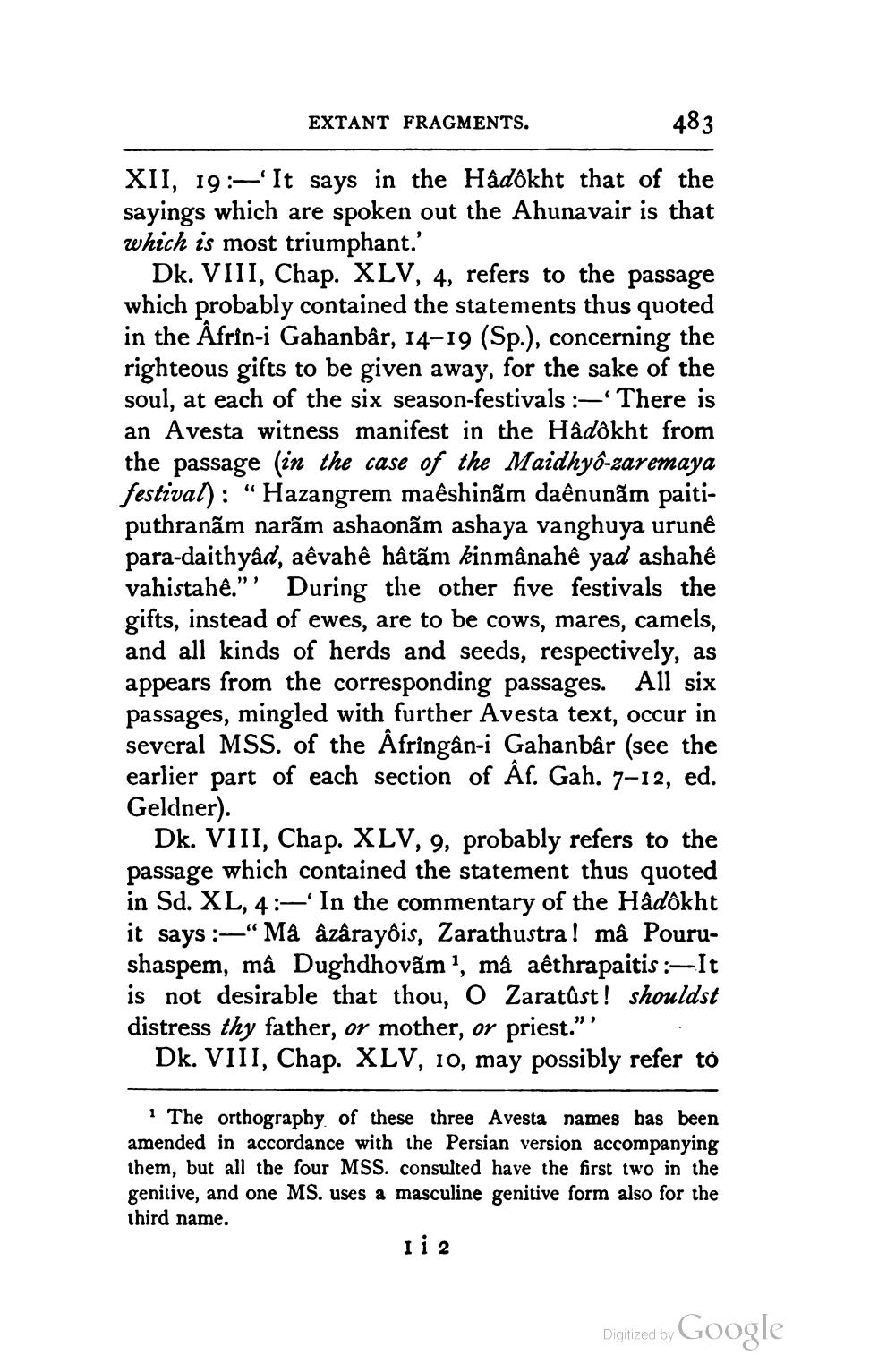________________
483
XII, 19-It says in the Hâdôkht that of the sayings which are spoken out the Ahunavair is that which is most triumphant.'
EXTANT FRAGMENTS.
Dk. VIII, Chap. XLV, 4, refers to the passage which probably contained the statements thus quoted in the Afrin-i Gahanbâr, 14-19 (Sp.), concerning the righteous gifts to be given away, for the sake of the soul, at each of the six season-festivals :-" -'There is an Avesta witness manifest in the Hâdôkht from the passage (in the case of the Maidhyo-zaremaya festival): "Hazangrem maêshinẩm daênunam paitiputhranam naram ashaonam ashaya vanghuya urunê para-daithyâd, aêvahê hâtãm kinmânahê yad ashahê vahistahê." During the other five festivals the gifts, instead of ewes, are to be cows, mares, camels, and all kinds of herds and seeds, respectively, as appears from the corresponding passages. All six passages, mingled with further Avesta text, occur in several MSS. of the Âfrîngân-i Gahanbâr (see the earlier part of each section of Âf. Gah. 7-12, ed. Geldner).
Dk. VIII, Chap. XLV, 9, probably refers to the passage which contained the statement thus quoted in Sd. XL, 4:- In the commentary of the Hâdôkht it says:"Mâ âzârayôis, Zarathustra! mâ Pourushaspem, mâ Dughdhovãm1, mâ aêthrapaitis:—It is not desirable that thou, O Zaratust! shouldst distress thy father, or mother, or priest."'
Dk. VIII, Chap. XLV, 10, may possibly refer to
1 The orthography of these three Avesta names has been amended in accordance with the Persian version accompanying them, but all the four MSS. consulted have the first two in the genitive, and one MS. uses a masculine genitive form also for the third name.
1 i 2
Digitized by
Google




